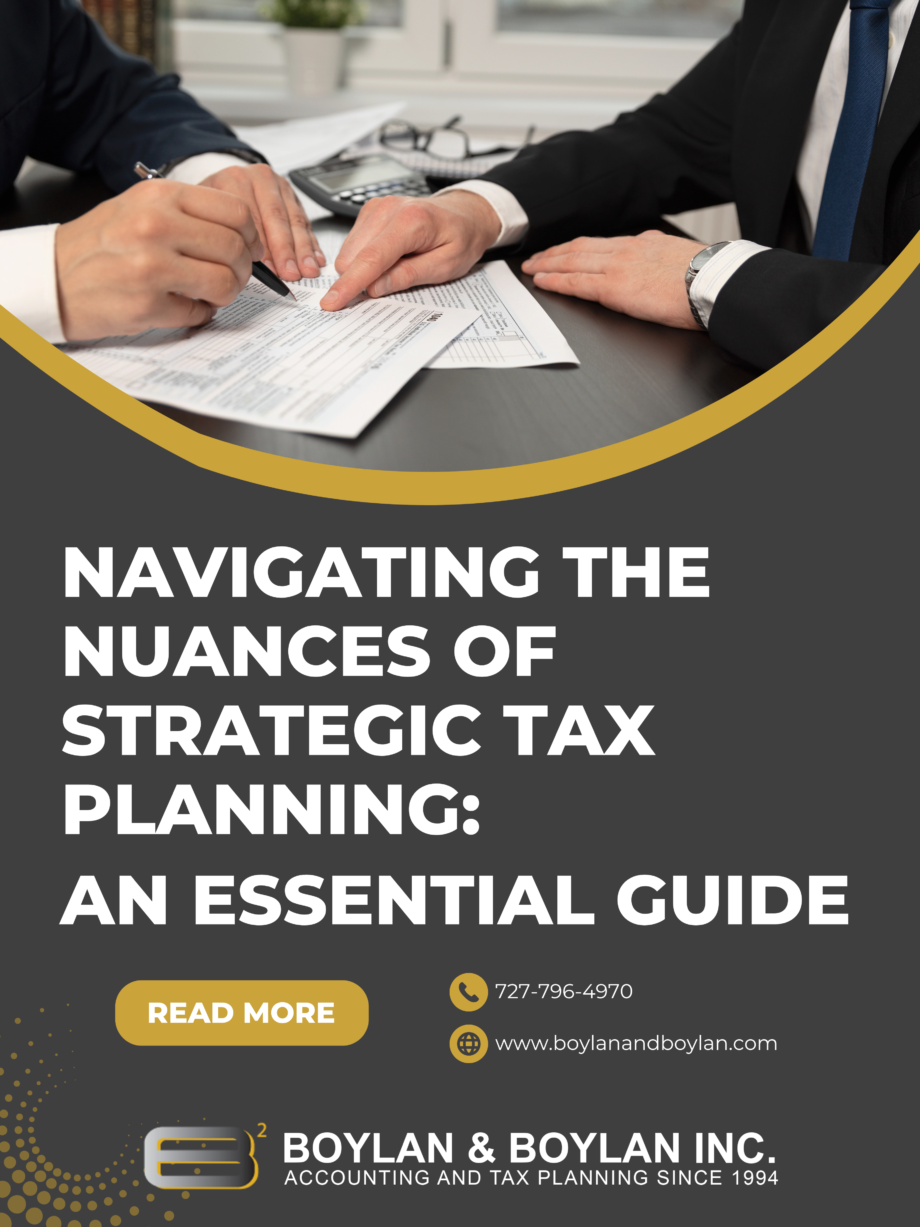Strategic tax planning is an essential component of financial management, helping both individuals and businesses to minimize their tax liabilities while ensuring full compliance with the law. The complexities of tax regulations can be daunting, but with a well-thought-out tax strategy, you can significantly enhance your financial outcomes. This comprehensive guide delves into the concept of strategic tax planning, offering insights and examples to help you make informed decisions that could lead to substantial tax savings.
Understanding Strategic Tax Planning
Strategic tax planning involves a thorough analysis of your financial affairs from a tax perspective with the aim of reducing tax liability. It is a proactive approach that requires understanding the interplay between current tax laws and your financial goals. Effective tax planning strategies can involve several elements, such as timing income and deductions, selecting the right investment types, and choosing the most beneficial business structure.
Key Components of Strategic Tax Planning
1. Timing of Income and Deductions: Manipulating the timing of income and deductions can be a powerful tax-saving strategy. For example, if you anticipate a higher tax rate next year, it might make sense to accelerate income into the current year and delay deductions to the next. This strategy requires precise timing and a good understanding of your income streams and potential deductions.
2. Selection of Investments: Certain investments have tax advantages that can play a pivotal role in reducing your taxable income. For instance, municipal bonds are often free from federal taxes and, in some cases, state taxes, making them an attractive option for investors in higher tax brackets. Understanding which investments make the most sense for your tax situation can significantly impact your overall tax strategy.
3. Choosing the Right Business Structure: For business owners, selecting the right entity type—such as a sole proprietorship, partnership, LLC, or corporation—can have substantial tax implications. Each business structure comes with its own tax rules and benefits. For example, corporations face double taxation on dividends, while LLCs can offer the benefits of pass-through taxation, where business income is only taxed once at the individual owner’s rate.
4. Retirement Planning: Contributing to retirement accounts such as a 401(k) or IRA can reduce your taxable income since contributions are often made pre-tax. Additionally, planning for retirement includes choosing between Roth and traditional accounts, each with its distinct tax advantages depending on your current and future tax scenarios.
Implementing Tax Planning Strategies
The implementation of strategic tax planning involves a series of steps, including:
1. Comprehensive Financial Review: A thorough review of your financial situation is essential. This includes understanding your income sources, investment portfolio, business activities, and personal expenditures that can influence your tax obligations.
2. Staying Updated with Tax Laws: Tax laws are continually changing, and staying informed about these updates is critical. This may involve regular consultations with a tax professional who can provide insights and guidance tailored to your situation.
3. Utilizing Technology and Tools: Modern tax software and tools can help track expenses, deductions, and other important financial data that can influence your tax planning strategy. These tools can also provide simulations and forecasts to help you make better decisions.
Real-World Applications
Imagine a freelance graphic designer who maximizes their use of home office deductions and equipment depreciation to reduce taxable income. Or consider a small business that shifts from sole proprietorship to an S-corporation to enjoy pass-through taxation benefits while also employing a reasonable salary strategy to minimize self-employment taxes.
Conclusion
Strategic tax planning is more than just a yearly task; it’s an ongoing process that can significantly impact your financial health. By understanding and applying the principles of effective tax planning, you can not only ensure compliance with tax laws but also position yourself for greater financial success. Whether you’re a business owner, an investor, or simply trying to manage your personal finances more effectively, strategic tax planning is a crucial tool in your financial toolkit.

